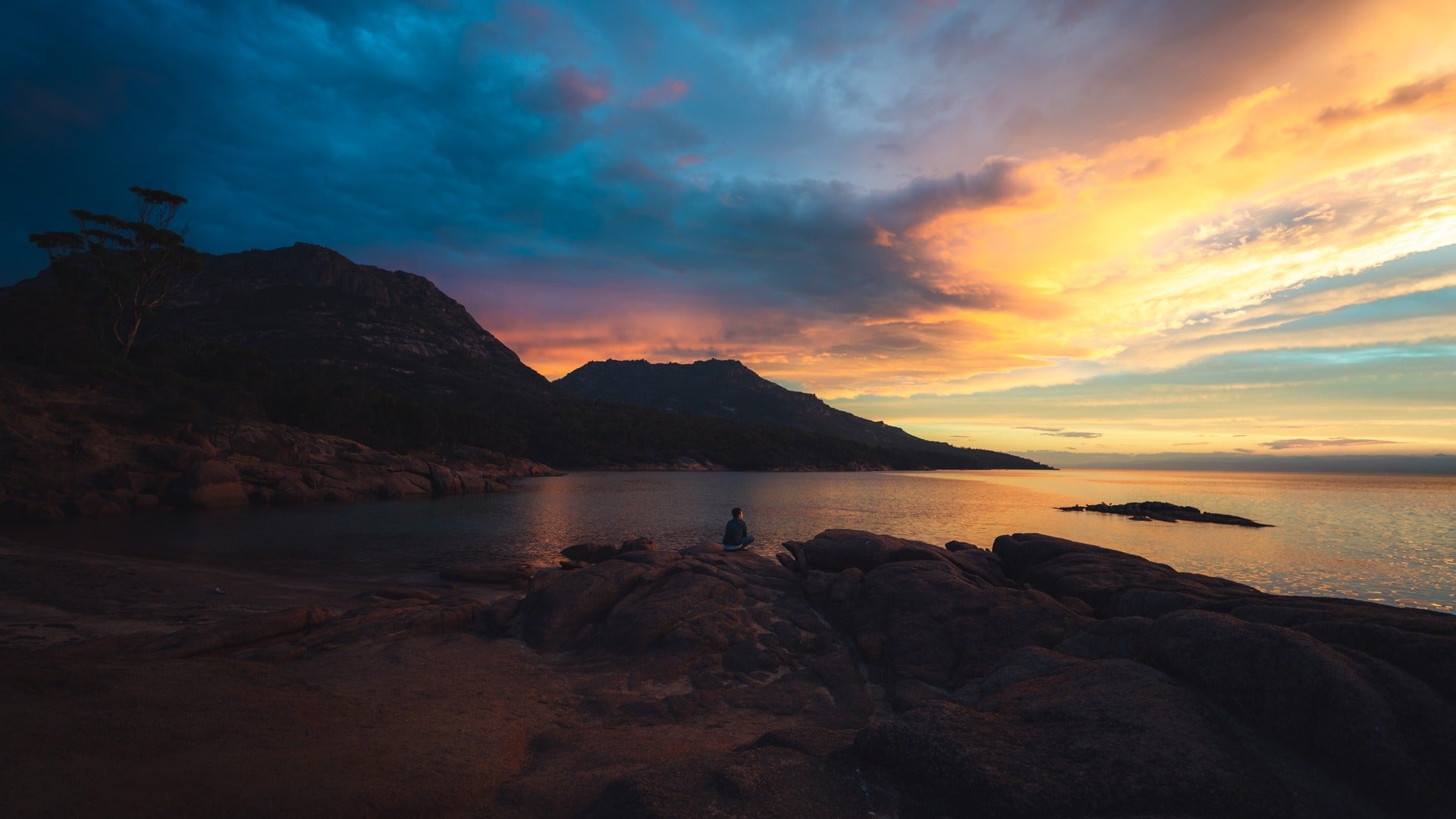Everyone is a beginner at something at some stage.
It’s great. A beginners mind is something you should always cherish and hold on to. It’s an exciting time, everything is new and there’s so much growth and discovery to be had on your new journey.
When you first start out in photography, the domain seems huge. F-stops and shutters. Compositions and story. Post processing and social media. There’s so much to learn! Where does one even start?
Well, in my opinion, when first starting photography, your focus should be on 3 main things:
Vision, repetition, reflection.
Abstracted out a little further - Vision is about how you ‘see’ as a photographer. It’s about how you identify compositions, how you use visual language, how to read the light.
Repetition is about practice. The great thing about photography is that it’s easy to count how much you’ve practiced - look at the amount of frames you’ve taken for that year.
Reflection is about critically looking at your work, adjusting and tweaking your vision and skills bit by bit. Because even if you have a lot of repetition, if you’re not reflecting on and then adjusting your work, there’s no amount of hard work you can put in to become better.
So with those 3 main areas to work on, here’s 8 tactical tips for you beginner photographers that touch all 3 of these areas.
-
1. Auto is your friend
Let’s get this out of the way first up.
As a beginner photographer, no one is judging you if you just use auto.
Hell, no one is judging you if you’re just using your phone or your GoPro to take stills (guilty). It doesn’t matter what you shoot with nor the technical details of how you shoot it.
Use auto. It will let you get out of the way of yourself and allow you to focus on the thing that’s more important…
-
2. Vision and composition
This is what you’re trying to develop - your vision.
As a beginner photographer, you want to work on making your photographs interesting. This means ”learning how to see”, and that takes practice.
One thing that helps is to start seeing the world in compositions. By mentally visualising a frame around everyday objects and things you find interesting, it’s like you’re practicing photography even without taking a single photograph.
By mentally framing interesting things all day, every day, you’ll start to begin to “see photographs” in everyday life.
When it comes to positioning elements in your image, we’re talking about composition. Composition is the objects in your image and where they are placed.
For now, use the rule of thirds. Put everything on a third. Keep it simple for yourself and expand on other concepts in the near future.
-

3. What’s interesting? Subject subject subject
Part of having good vision is being able to have a strong subject in every image.
Focus on trying to have a strong subject in every image you make - if it’s a landscape, put a person in it for scale. If it’s a close up image of a wave, try to capture the shape and patterns of the wave, or even the droplets that come off the top. If it’s a close-up portrait, make sure the eyes are in focus, well lit and contrasty.
Regardless of what image you’re taking, ensure that there’s something for the viewer to rest their eyes on. Or even better, something worth talking about.
-
4. Light is everything
And having good vision means knowing how to spot good light.
Always look out for how the light changes your surroundings. Is it soft? Is it hard? Is it colourful? Is it flat? What are the characteristics of the light right now?
Being able to identify these differences in tonality enables you to react accordingly - you can make different decisions based on the information you have.
As a bonus tip, a tactical way to improve your photography immensely is to shoot at sunrise and sunset. It’s at these times and their respective ‘golden hours’ (an hour after sunrise or an hour before sunset. also, most of the time not an hour, but I digress) that the light is the most gentle, saturated and (in my opinion) the best looking.

-
5. Emulate, don’t replicate
Getting inspiration is definitely a key to improving your vision.
When you see the compositions of other people and the results of how they approach a given scene, you’ll subconsciously remember these things for next time so that you can try them yourself.
This is great, and you should be taking in inspirations from all over the place (not just in photography), but remember, don’t copy.
Sure, you might be at a famous location and have to take “the shot”, but remember, there’s an unlimited amount of compositions to be had, so try to take something a bit different!
Be inspired. Don’t steal.
-
6. Experiments, not failures
It’s pretty fancy to use the word “fail” now a-days. Everyone is obsessed with the idea of not being afraid of failure and trying to encourage an all-in attitude.
While this is nice, and you should definitely be considering how to remove the barrier to repetition, it’s more useful to replace the word “failure” with “learning”.
Reframing your compositions as “experiments” encourages this.
When you try something new and pose it as an experiment, it doesn’t matter whether it’s successful or not, all that matters is what you learned from that process. When it’s an experiment, there’s no pressure of failing, which encourages you to take more images. If your experiment turned out to be great, then there’s only upside and you can repeat that success again in the future. If it didn't, no biggie. Take the learning and move on to the next experiment.
Reflection and critically analysing yourself is the fastest way to become better.
And experimentation is a great way to frame it so you take the pressure off yourself.
-

7. Shoot everything. Shoot every day.
In my first 6 months of photography, I spent every single day out on the street taking street photos for at least an hour after work.
50,000 frames later, I started to feel confident with my photography and things started to click. I was then able to take those learnings and apply them to different styles of photography, and now those learnings are universal truths I can apply to any style I wish to shoot - 150,000 frames later.
Photography takes practice - a lot of it.
In my beginner period, I’d be lucky if I got 1 “keeper” out of every 100 images I took.
Now, I’m a little more deliberate and my average is getting better, but to this day, I still experiment a lot and take a shitload of frames that never see the light of day.
On a day’s worth of travelling, I’ll easily take 1000 frames - and that’s not burst shots either.
Shoot everything. Shoot often. This is the hard work of photography. Good thing is damn fun!
-
8. Your first 100 portfolio photos
Think about this often:
“What are my most favourite 100 images?”
Forget Instagram. After all, Instagram is not photography. It’s not even for photographers (anymore). It’s not for people who enjoy photography, it’s not for photographers who want to improve. Rather, Instagram is for everyone. And what 'everyone' sees are just images. Sometimes they’re fake. Sometimes they’re real. Sometimes they’re masterful. Sometimes they’re shitty snapshots of yesterday’s lunch.
And while all of that is o.k, Instagram will not help your progression as a photographer. It’s a marketing tool.
Instead, focus on your favourite 100 images. If I was to ask you to show me, in a book, your most favourite 100 images, what would you show me and would you be proud of them? Would you be able to talk about them, your process, the story behind each one? Would each one matter to you deeply?
This is a take on Malcom Gladwell’s “10,000 hour” rule. You need to put in the time and the work and the repetition and the reflection to come up with a body of work that you’re proud of. Forget about the likes and focus on the skill. All the marketing stuff will come after that.
Bonus tip
Shoot RAW + JPEG for now.
Don’t worry about your RAWs… for now. They’re for use in post production a little later on when you want to dive in to that.
For now, JPEGS will do. Most cameras have great colours out of the box, so don’t worry too much about post processing. But for when the time comes and you’re ready, you’ll wish you had RAWs to go back to.
You’ll be an intermediate in no time!
Becoming comfortable with your photography takes a long time and a lot of practice. But with a dedicated focus on vision, repetition and reflection, you’ll get there in no time.
And remember to enjoy the process. It’s fun.





0 comments